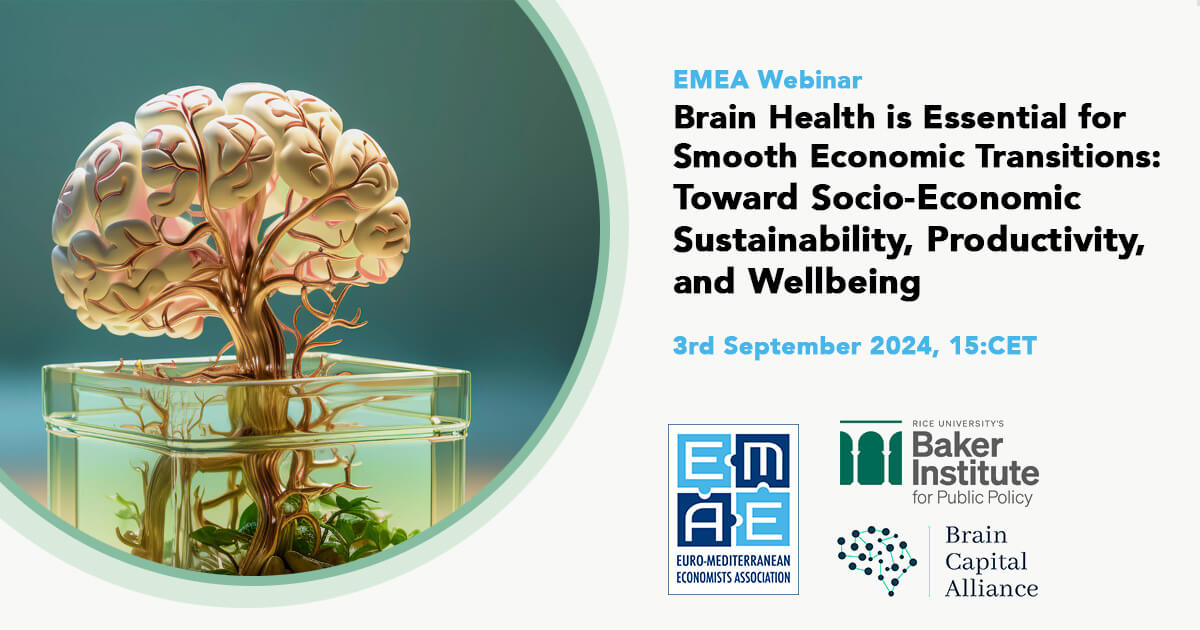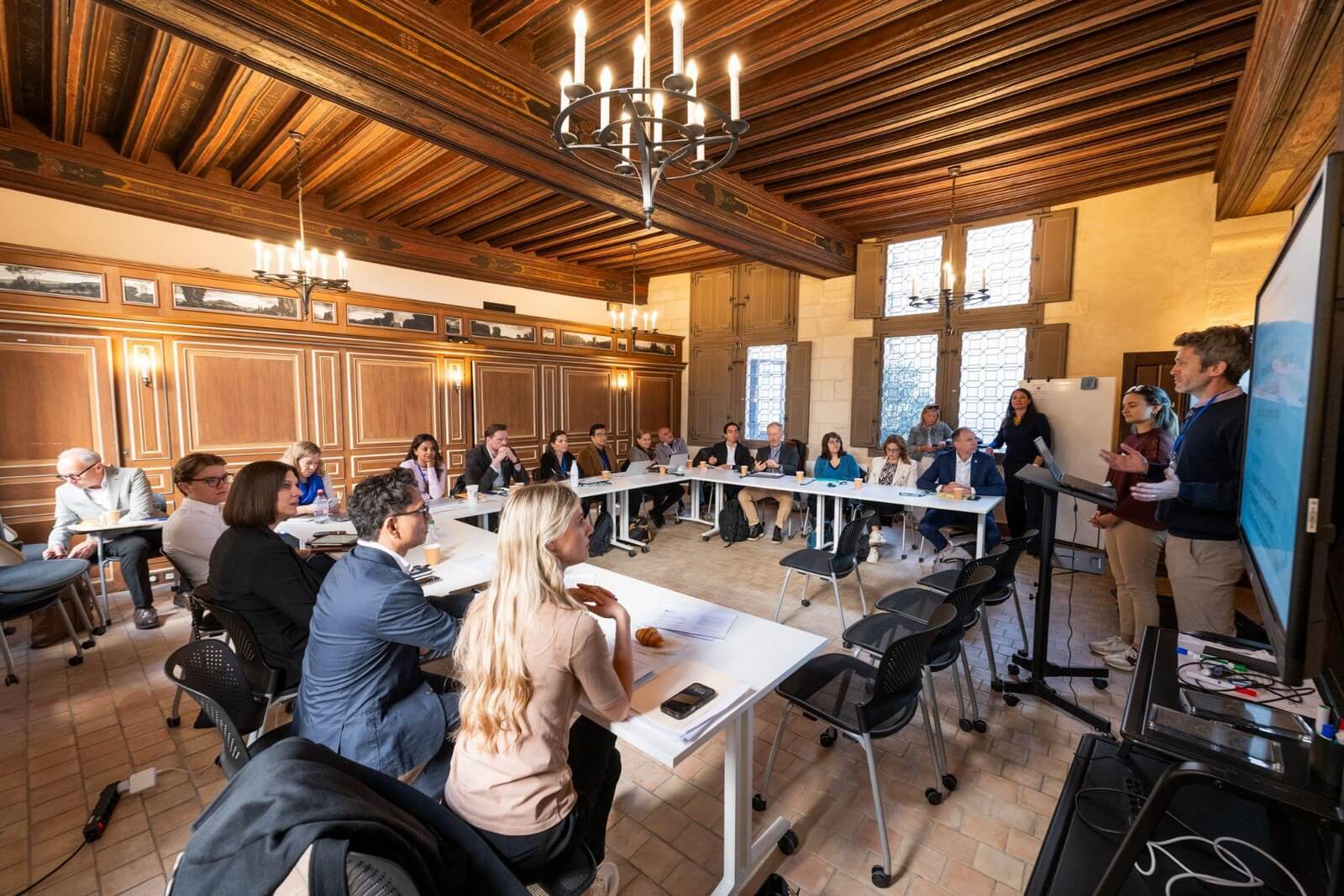The Euro-Mediterranean Economists Association (EMEA), the Brain Capital Alliance and the Neuro-Policy Program of Rice University’s Baker Institute for Public Policy are proud to present a pivotal webinar: “Brain Health is Essential for Smooth Economic Transitions – Toward Socio-Economic Sustainability, Productivity, and Wellbeing”.
The webinar will take place online on Tuesday 03 September 2024, 15:00 CET. It will delve into the critical role of brain health in facilitating major global economic transformations.
Poor brain health is a transition risk. Optimal brain health is essential to speeding up major global skill-intensive economic transformations, such as the bioeconomy, green, care economy, and digital transitions. In other words, good brain health is vital to socio-economic sustainability, productivity, and wellbeing.
The care transition focuses on recognizing and investing in care services and care work as essential for economic growth and social well-being. The green transition involves shifting toward environmentally sustainable and fairer societies to combat climate change and environmental degradation. The digital transition aims to unlock digital growth potential and deploy innovative solutions for businesses and citizens, and to improve the accessibility and efficiency of services. The bioeconomy transition refers to the shift toward an economy based on products, services, and processes derived from biological resources, such as plants and microorganisms.
Brain capital, which encompasses brain health and brain skills, is a critical economic asset for the success of economies of the future. The brain economy transition from a brain-negative (brain-unhealthy) economy, which depletes brain capital, to a brain-positive (brain-healthy) economy, which arrests and reverses the loss of brain capital, will be foundational to these major transitions. Increased brain capital is vital to educational attainment, upskilling and reskilling.
The Yaounde Declaration on the Brain Economy, Brain Health, and Brain Capital will be introduced in preparation for its showcasing at the 79th United Nations General Assembly Brain Days.
This event will develop a detailed roadmap for transitioning to a brain-positive economy, and foster interdisciplinary dialogue among experts from health, education, workforce, and policy sectors.
Join us for this insightful webinar to understand how brain health can drive efficient and sustainable economic transitions. Your participation will help shape a future where brain capital is recognized as a cornerstone of economic success.
The webinar is co-organised by the Euro-Mediterranean Economists Association (EMEA), the Rice University’s Baker Institute for Public Policy and the Brain Capital Alliance, and will take place on Tuesday 03 September 2024, 15:00 CET, on Zoom.
Agenda
Welcome and Introduction: Prof. Rym Ayadi, Founder and President of EMEA
Initial comments on the Brain Communications paper: Harris Eyre, MD, PhD, Lead of Neuro-Policy, Rice University’s Baker Institute for Public Policy, EMEA Advisor
Keynote Presentations
- The Yaounde Declaration: Alfred Njamnshi, Founder and CEO of Brain Research Africa Initiative
- Key skills for the digital transition: Cinzia Alcidi, Director of Research, Center for European Policy Studies, Member of EMEA Executive Board
- The importance of brain capital for the clean energy transition: Lawrence Jones, Senior Vice President International, Edison Electric Institute
- The importance of the Aging and the Care Economy: Allison Sekuler, President & Chief Scientist, Baycrest Academy for Research and Education and Centre For Aging & Brain Health Innovation
- The importance of construction worker brain capital: Rob Hurd, Business Development, Bechtel
Discussants
- Shiva Dustdar, Dean of the European Investment Bank Institute
- Toby Ewing, Executive Director, California Government Mental Health Oversight and Accountability Commission
- Kana Enomoto, Director of Brain Health, McKinsey Health Institute
- Marta Sanchez Bret, General Manager, WeMind Cluster
- Frederic Destrebecq, Executive Director, European Brain Council
- Paweł Świeboda, Founder NeuroCentury, EMEA Advisor
- Aimie Brennan, Dean of Education, Marino Institute of Education, Trinity College Dublin





